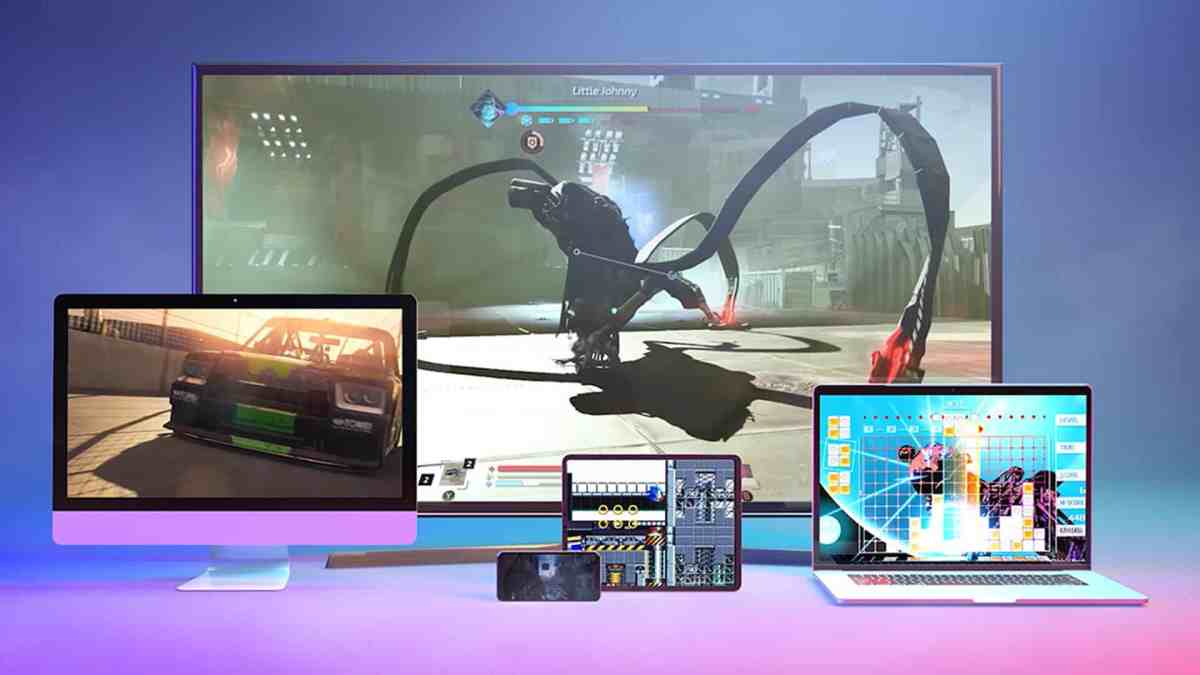What’s your opinion of cloud gaming? If you haven’t tried it, your guttural reaction might be one of skepticism. On the other hand, those who have streamed games for any serious amount of time may be more likely to believe in the technology — but not necessarily enough to make Stadia, Luna, or Xbox Game Pass on mobile their primary places to play.
The fact is many of those who enjoy cloud gaming can’t say it’s always dependable. It’s hard to see a near-future where cloud gaming is affordable and reliable enough for everyone who wants it to be. However, the distant future is harder to predict, and even today, playing via the cloud has its advantages.
Over a year since I entered the xCloud preview and reviewed Google Stadia, I’d approximate I’ve spent over 220 total hours in the proverbial cloud. I’ve seen all kinds of issues in that time. On Stadia, I’ve sometimes seen my games artifacting every few minutes, though usually just a split-second at a time. I’ve had a recurring issue on more than one night where I’d lose audio if I exited the app on my phone to check something else. I’ve suffered input lag that kept me from playing longer than a few minutes. My Chromebook, made by Google just like Stadia is, presents my games with poorer visual quality than on other devices.
Early Xbox console streaming previews were flat-out broken for me, while xCloud’s image quality still isn’t as sharp as Stadia’s today. Anyone who intends on evangelizing for cloud gaming, by profession or fandom, needs to be open about these issues. It’s not that they’ll be frequent for everyone, but they’ll be common enough that expectations must be tempered appropriately.

There’s also the data-capped elephant in the room. It’s no wonder so many are cloud-averse when their internet providers punish them with grueling surcharges for overextending their usage. Playing games in 4K can binge-eat 20 gigs per hour, meaning a solid weekend of gaming can cost you more than a console if your ISP has you boxed into a bad deal.
Until ISPs drop these annoying data caps like how phone service carriers abandoned selling us minutes, there’s no real solution, but neither is there as much of a problem as you might think. Though Stadia would love to be your one-stop shop for all things gaming, I believe (and deep down, Google probably does too) that cloud gaming is an excellent Plan B. It’s there when I want to play games and can’t get to my console or PC.
In my experience, the better times of cloud streaming have outnumbered the bad times. I’ve played on no fewer than three different internet speeds during the pandemic, two at home with one coming after an upgrade, as well as one at the office. (Don’t tell my boss.) Speeds have ranged from 35 Mbps to a full gigabit per second, and what I’ve found is, once you get around that 35 Mbps marker, there’s little change. I can have great, reliable streams on 35 Mbps just like I can at home on much faster speeds, or I’ve also seen some streams fail even on my high speeds at home.
With streaming games, there appears to be a floor — and a relatively affordable one — that allows many people to get in and enjoy it. It’s not always great, but services like Stadia, Game Pass mobile, PS Now, and Amazon Luna will survive and grow because of that floor. They don’t rely on blazing-fast speeds.

Although, Xbox (and PlayStation to a less successful extent) is a unique case of having a foot in both worlds, hardware and cloud, so I look at it differently from its competitors. It has an advantage in versatility. If Stadia and Luna are marketed as the all-in-one platforms they certainly are not, they will only appeal to Silicon Valley types with the means to play like that and the motive to have the trendiest stuff lying around their high-priced apartments. That’s a rather limited proposition for the platform holders, like the parents who bought Wiis at launch only to let their consoles collect dust a couple years later. Stadia and Luna should pitch themselves as the entertaining supplementary platforms they are.
Realistically, they won’t be the go-to platforms for many players right now. But with inviting subscription libraries like Luna already has and Stadia seems to be moving toward, they can feel like worthwhile services to keep around the same way most of us subscribe to a number of video streaming services such as Netflix, Disney+, or HBO Max rather than just one. Despite their vocal critics in the gaming world, there can be a future where Stadia, Luna, Game Pass mobile, and more coexist, each showcasing original content to ensure you keep from hitting that unsubscribe button.
I expect they will all survive not because they find unique ways to excel, but because they’re all good enough. The same way my favorite shows and movies are scattered across six different apps today, my favorite games have long been segmented across several hardware platforms, and now cloud platforms are joining that fray too. So long as they work well enough to lean on when people would otherwise have to wait to play, cloud platforms have a place in gaming’s future.






Published: Jan 22, 2021 12:00 pm